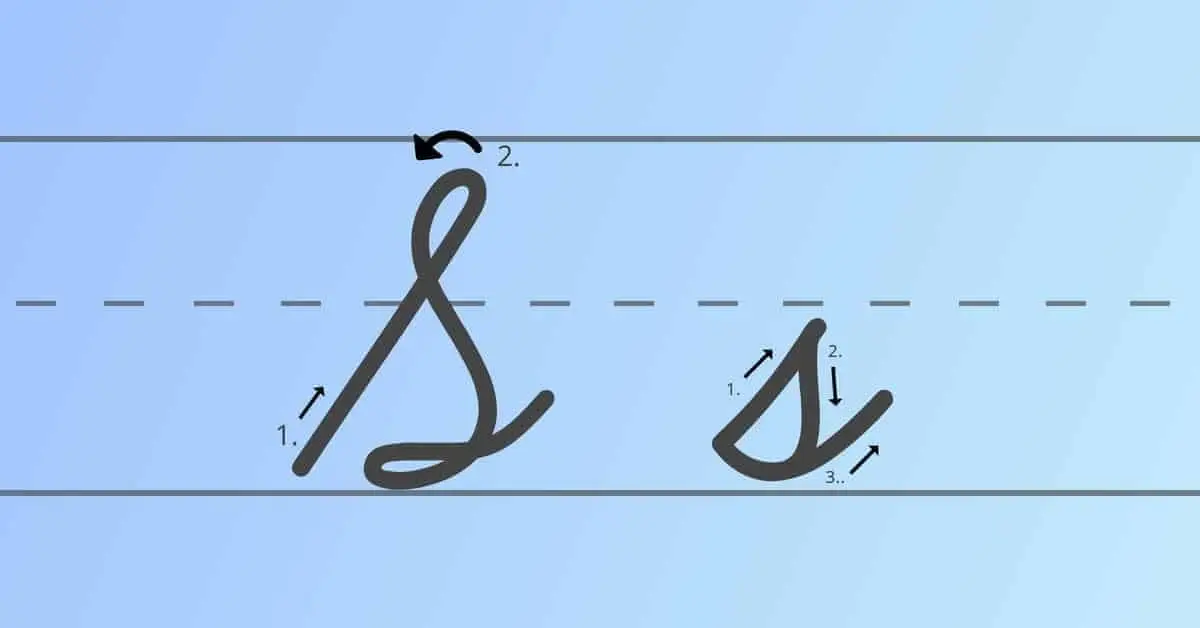Can someone explain why one cannot read cursive? It is just a tilted (sometimes fancy) font, what’s so hard about it?
Edit:
After being made aware by a fellow lemmy’er and googling it, it seems I confused cursive with italics, English is not my first language.
Though I learned cursive at school when I was 6 without realizing it is called cursive in English. It was part of the basic curriculum at that time, didn’t know this wasn’t a thing in other countries.
As someone who didn’t learn English as a first language, cursive is like another language to me. I don’t recognize half of the letters, and i never encountered it enough to properly learn it or have an incentive to learn it.
Seems though I learned cursive at school when I was 6 without realizing it is called cursive in English (English is not my first language) . Didn’t know this wasn’t a thing in other countries.
It is not a triangle, it is a slash with a hook like /J but combined. You never lift your pen of the paper to write a word. Dots and dashes are added after the word is finished.
I think at one point a cursive S was “draw an S without lifting your pen from one letter to another” so it comes out looking a bit like an 8. Then the top loop got smaller and smaller, until the one guy who codified the cursive alphabet just didn’t put the top loop on at all.
This same guy for some reason decided capital Q should look like a 2.
If I were in charge of the curriculum, students would get an introduction to cursive and an afternoon playing with it, basically so they can recognize it as a “font” and read it. Then let them continue to print or more likely type their work.
I’m not so old and I have been taught writing and reading in cursive first, then the graphic evolution between cursive and block letters, so I could learn reading in block letters.
Can someone explain why one cannot read cursive? It is just a tilted (sometimes fancy) font, what’s so hard about it?
Edit: After being made aware by a fellow lemmy’er and googling it, it seems I confused cursive with italics, English is not my first language. Though I learned cursive at school when I was 6 without realizing it is called cursive in English. It was part of the basic curriculum at that time, didn’t know this wasn’t a thing in other countries.
There are some wonky letters, like capital G, S where if you never learned you wouldn’t know what you’re looking at.
As someone who didn’t learn English as a first language, cursive is like another language to me. I don’t recognize half of the letters, and i never encountered it enough to properly learn it or have an incentive to learn it.
[Serious]Can you read when you tilt a page 30° to the left? Or is it more about the font type than the font angle?
I think you’re thinking of italics, not cursive.
Your are correct, I looked up the difference.
Seems though I learned cursive at school when I was 6 without realizing it is called cursive in English (English is not my first language) . Didn’t know this wasn’t a thing in other countries.
I downvoted myself :D
It’s not though like why the fuck is s a triangle that’s the only thing I know about it and can’t read it
It is not a triangle, it is a slash with a hook like /J but combined. You never lift your pen of the paper to write a word. Dots and dashes are added after the word is finished.
I’m sorry how is not a triangle
not a triangle
A tri-angle has three angles
I think at one point a cursive S was “draw an S without lifting your pen from one letter to another” so it comes out looking a bit like an 8. Then the top loop got smaller and smaller, until the one guy who codified the cursive alphabet just didn’t put the top loop on at all.
This same guy for some reason decided capital Q should look like a 2.
If I were in charge of the curriculum, students would get an introduction to cursive and an afternoon playing with it, basically so they can recognize it as a “font” and read it. Then let them continue to print or more likely type their work.
I was similarly confused when I first learned about this. We were never taught to write in “print”, so handwriting - cursive - was the norm.
I’m not so old and I have been taught writing and reading in cursive first, then the graphic evolution between cursive and block letters, so I could learn reading in block letters.